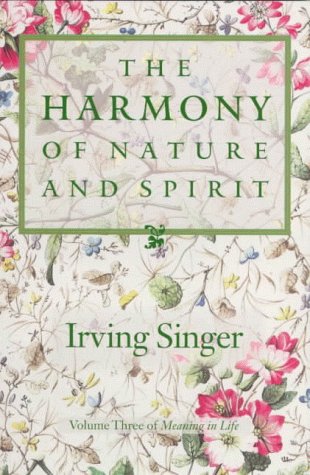Philosophical thinking has traditionally decreed that the human condition is split into two realms of being: nature and the spirit - the one physical and psychological; the other an inherently transcendent dimension that exceeds the natural. The author of this work finds the distinction unacceptable. The final book in Singer's "Meaning in Life Trilogy", argues that separating nature and the life of spirit not only precludes an understanding of how consciousness, awareness of value, and the pursuit of ideal possibilities originate in nature but also masks the discovery of how experience can be meaningful and a source of happiness. Studying the interaction between nature and spirit, the author examines the ways in which we may resolve our sense of being divided and thereby overcome the suffering in life. He speculates about concepts of happiness, play, acceptance of mere existence, and the need to live in unity with nature. The book suggests that the accord between nature and spirit, and between happiness and love, arises from an art of life that employs the same principles of imagination and idealization as those that exist in all artistic creativity.
Living the good life is an art, Singer writes, and like art in general it seeks the harmonization of meaning with consummatory happiness. It is through the meaning created by imagination and idealization, he says, that happiness and the love of life become available to us. Therein lie the aesthetic bases of ethics and religion.
- ISBN10 0801860512
- ISBN13 9780801860515
- Publish Date 23 November 1998 (first published 23 September 1996)
- Publish Status Out of Stock
- Out of Print 9 January 2001
- Publish Country US
- Imprint Johns Hopkins University Press
- Edition New edition
- Format Paperback
- Pages 280
- Language English
